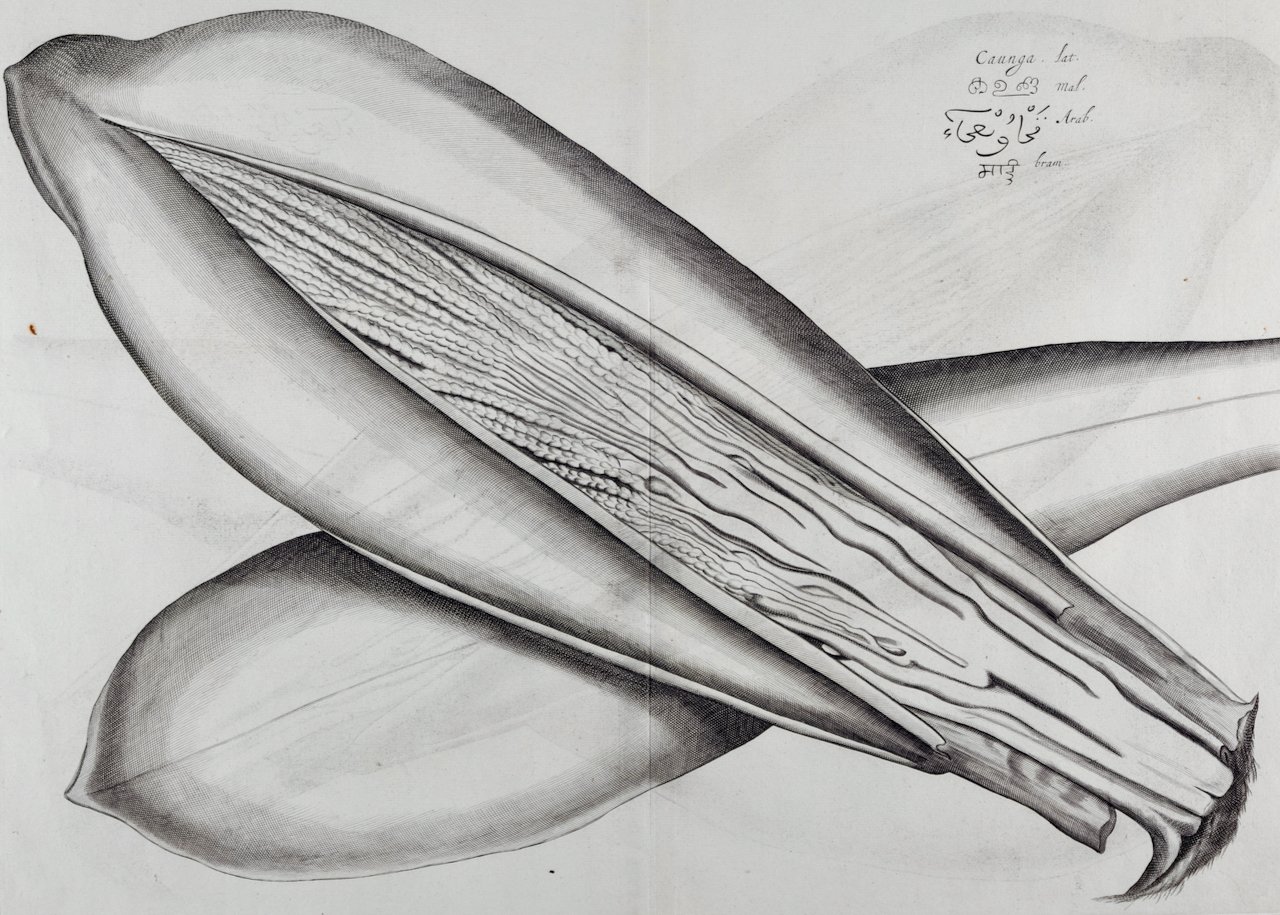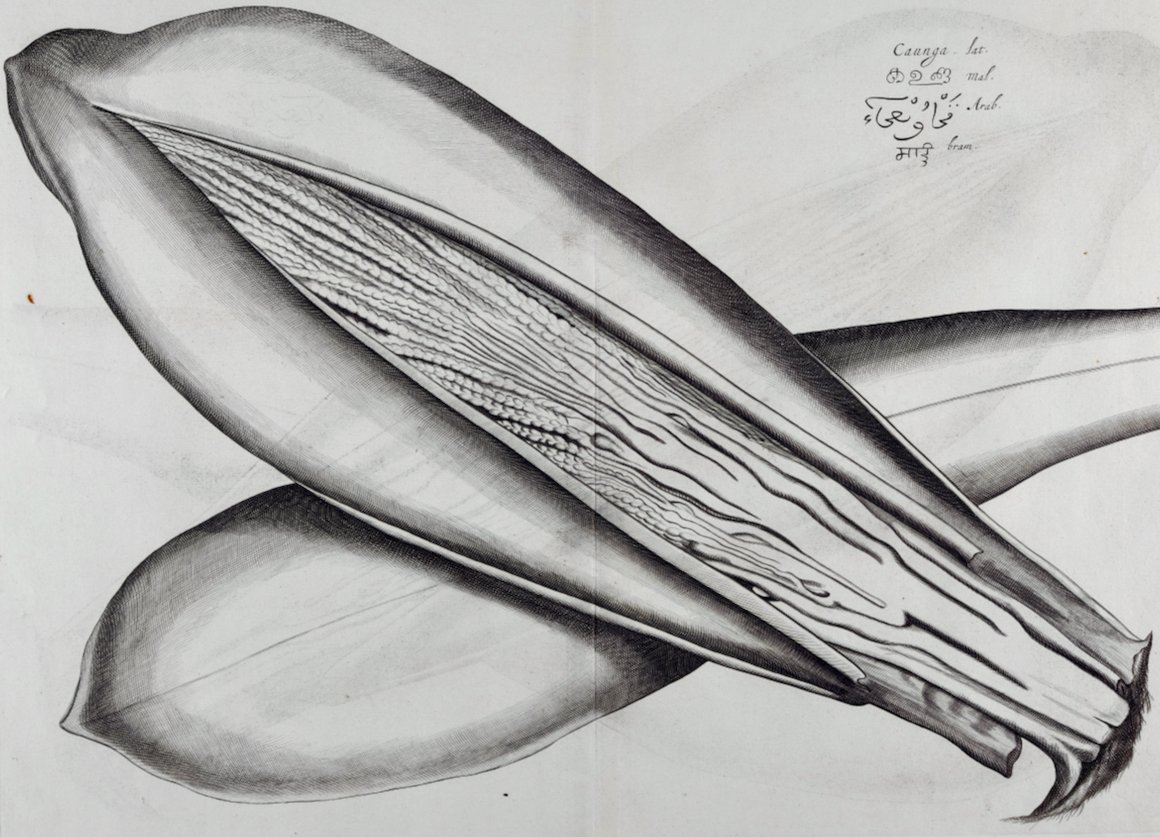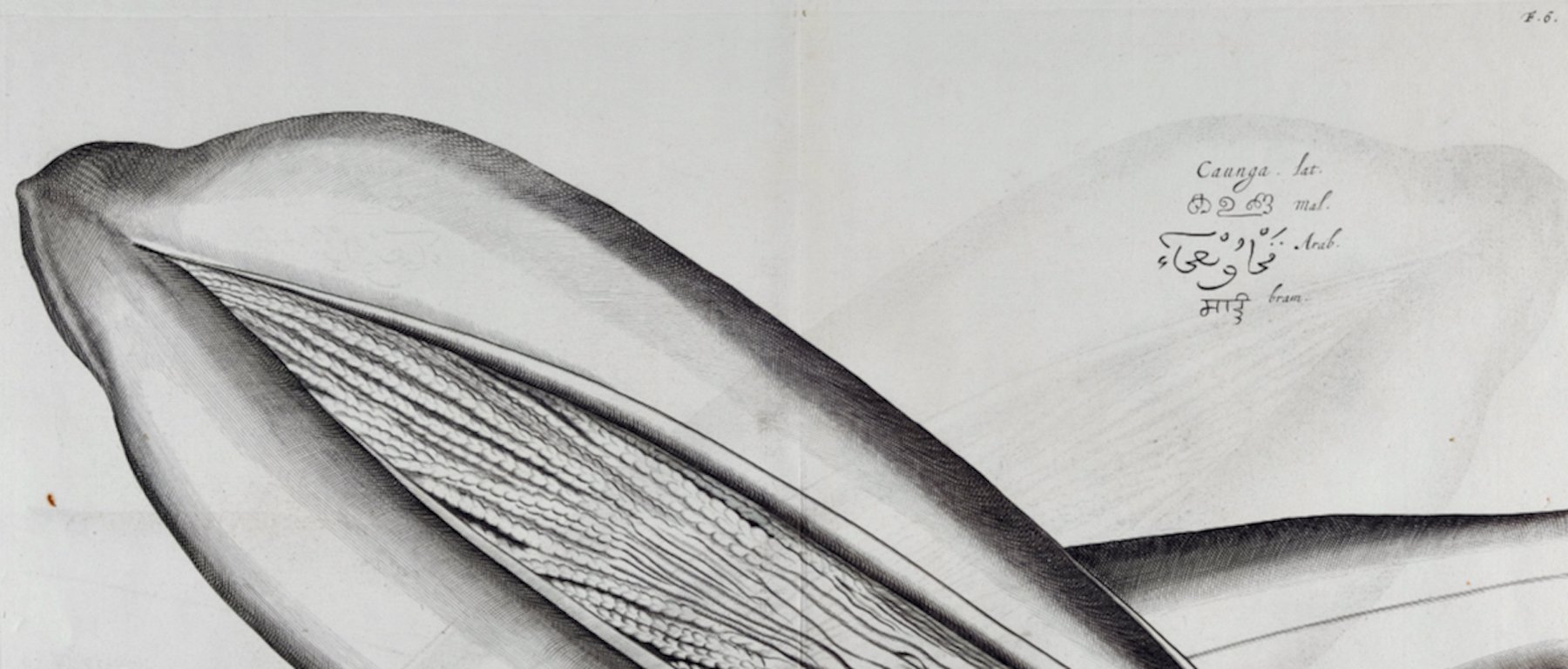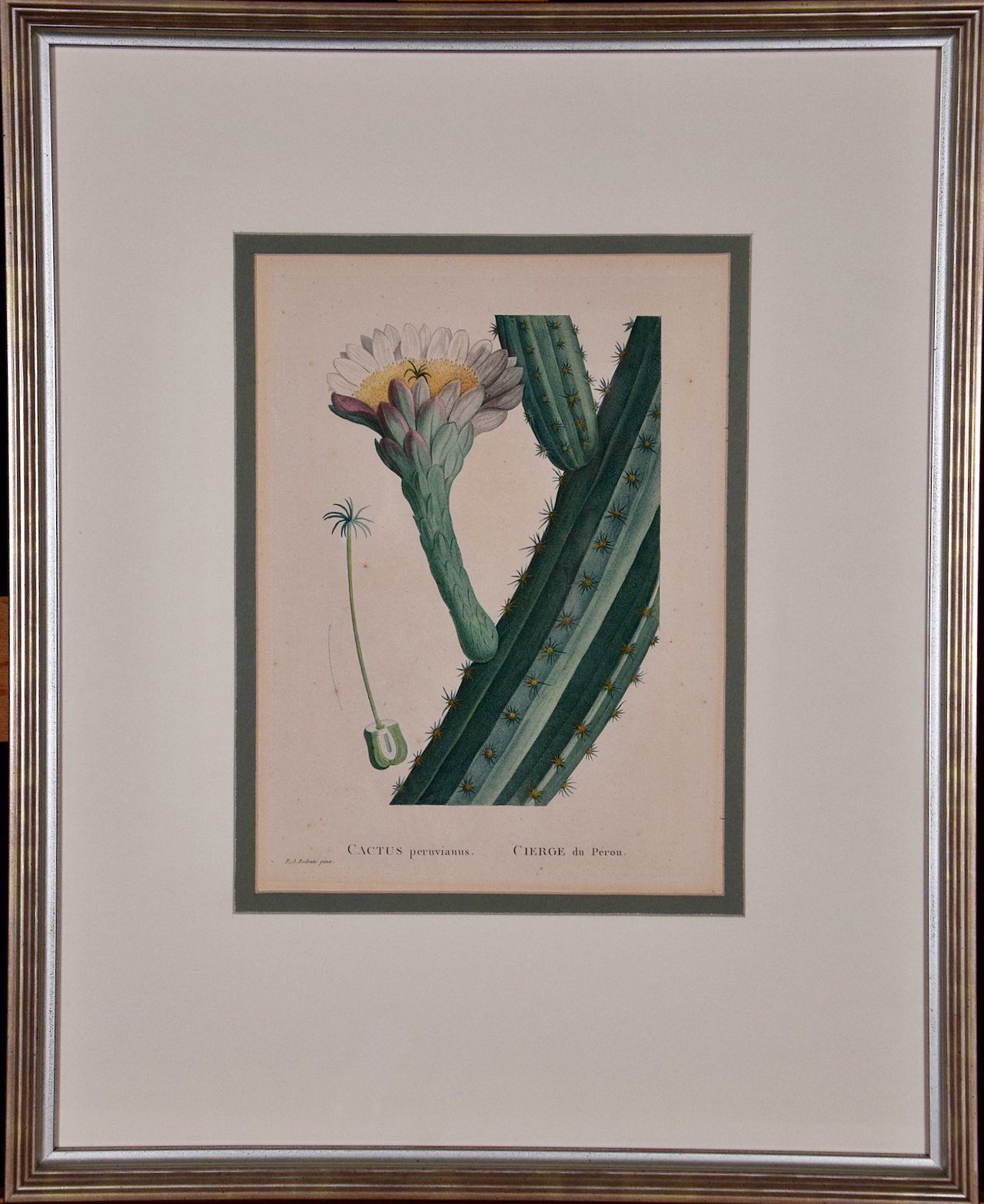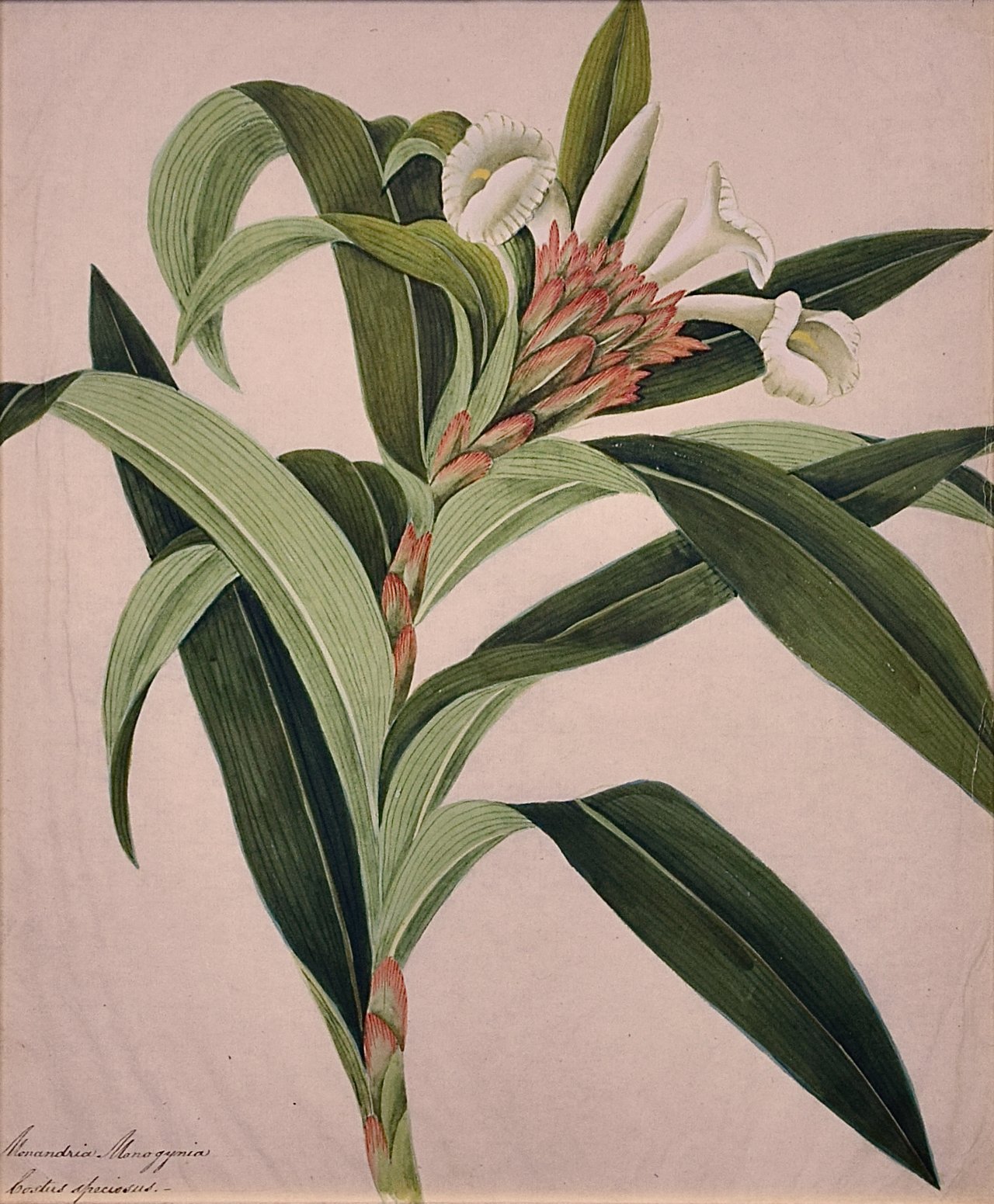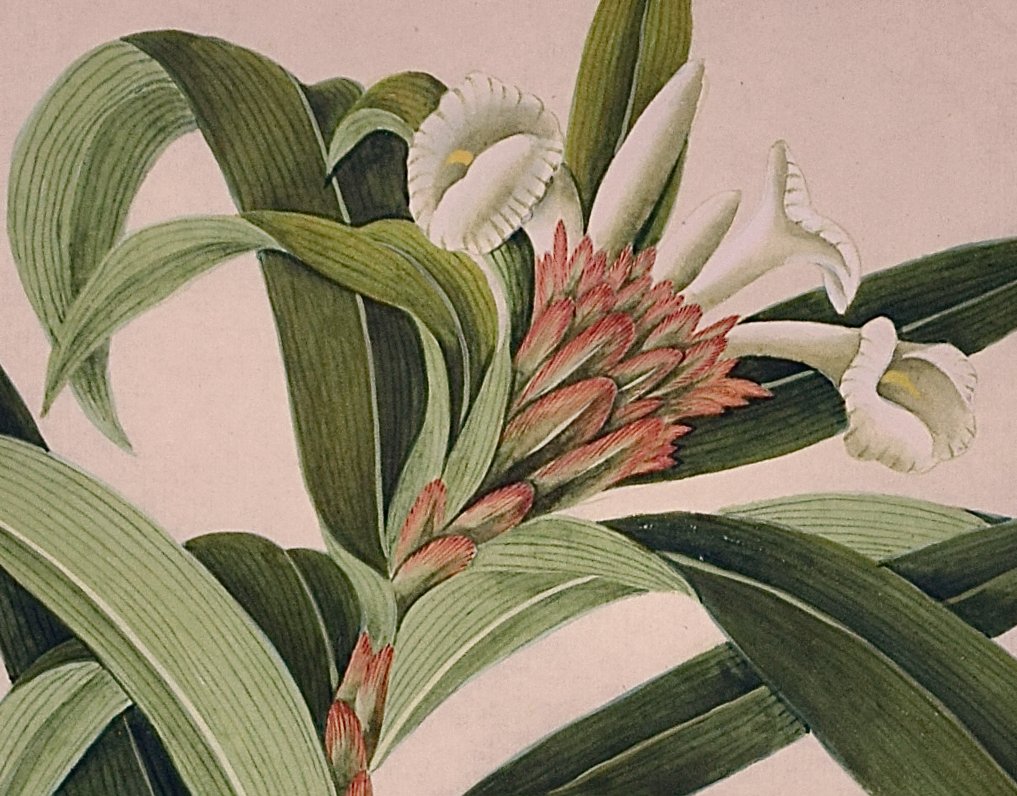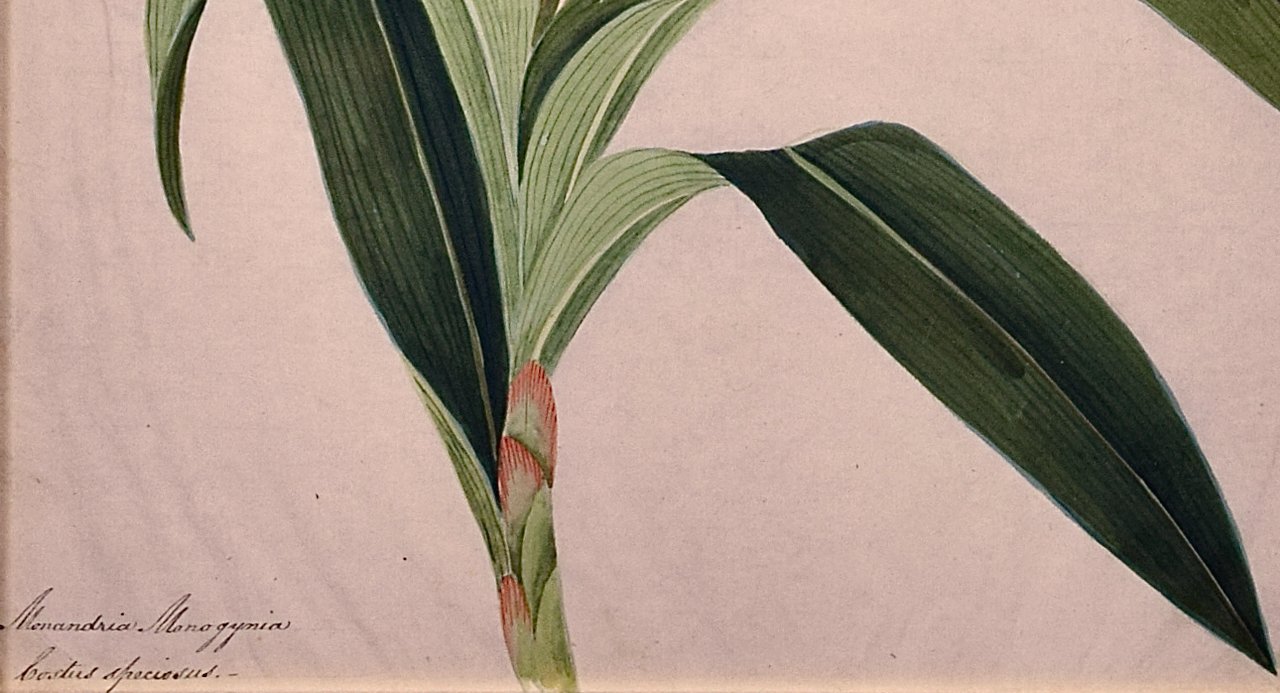Caunga Cucumber Plant: A 17th Century Botanical Engraving by Hendrik van Rheede
This is a rare 17th century engraving of a plant entitled "Caunga" by the Dutch botanist Hendrik van Rheede tot Drakenstein, plate 6 from his 'Hortus Indicus Malabaricus' (Garden of Malabar), published in Amsterdam in 1686 by Johann van Someren. The engraving depicts the caunga plant, also known as Inca cucumber or horned squash, which is a climbing vine that produces edible, cucumber-like fruits. Rheede's 19th century publication featured illustrations of exotic plants and fruits labelled with script in the upper right corner in Latin, Malay, Arabic, and Sanskrit. Hortus Indicus Malabaricus is believed to be the earliest comprehensive published work on the flora of Asia and the tropics. The 17th century treatise featured important illustrations of 740 plants of the region, including Indian medicinal plants.
Creator: Hendrik Adriaan van Rheede tot Drakenstein (1636 - 1691, Dutch)
Creation Year: 1686
Dimensions: Height: 15.25 in (38.74 cm) Width: 18.88 in (47.96 cm)
Medium: Engraving
Condition: See description below.
Reference #: 5056
This is a rare 17th century engraving of a plant entitled "Caunga" by the Dutch botanist Hendrik van Rheede tot Drakenstein, plate 6 from his 'Hortus Indicus Malabaricus' (Garden of Malabar), published in Amsterdam in 1686 by Johann van Someren. The engraving depicts the caunga plant, also known as Inca cucumber or horned squash, which is a climbing vine that produces edible, cucumber-like fruits. Rheede's 19th century publication featured illustrations of exotic plants and fruits labelled with script in the upper right corner in Latin, Malay, Arabic, and Sanskrit. Hortus Indicus Malabaricus is believed to be the earliest comprehensive published work on the flora of Asia and the tropics. The 17th century treatise featured important illustrations of 740 plants of the region, including Indian medicinal plants.
Creator: Hendrik Adriaan van Rheede tot Drakenstein (1636 - 1691, Dutch)
Creation Year: 1686
Dimensions: Height: 15.25 in (38.74 cm) Width: 18.88 in (47.96 cm)
Medium: Engraving
Condition: See description below.
Reference #: 5056
This is a rare 17th century engraving of a plant entitled "Caunga" by the Dutch botanist Hendrik van Rheede tot Drakenstein, plate 6 from his 'Hortus Indicus Malabaricus' (Garden of Malabar), published in Amsterdam in 1686 by Johann van Someren. The engraving depicts the caunga plant, also known as Inca cucumber or horned squash, which is a climbing vine that produces edible, cucumber-like fruits. Rheede's 19th century publication featured illustrations of exotic plants and fruits labelled with script in the upper right corner in Latin, Malay, Arabic, and Sanskrit. Hortus Indicus Malabaricus is believed to be the earliest comprehensive published work on the flora of Asia and the tropics. The 17th century treatise featured important illustrations of 740 plants of the region, including Indian medicinal plants.
Creator: Hendrik Adriaan van Rheede tot Drakenstein (1636 - 1691, Dutch)
Creation Year: 1686
Dimensions: Height: 15.25 in (38.74 cm) Width: 18.88 in (47.96 cm)
Medium: Engraving
Condition: See description below.
Reference #: 5056
The engraving is printed on 17th century laid, chain-linked paper, watermarked with an elaborate crown design. The sheet measures 15.25" high by 18.88" wide. There is a central fold, as issued. There is a small dark spot on the left which appears to represent a paper inclusion which occurred when the hand-made paper was produced. The print is otherwise in excellent condition.
There are additional Rheede botanical engravings from his 'Hortus Indicus Malabaricus' publication that are listed on my 1stdibs storefront and online website. These would make for an impressive display grouping. A discount is available for purchase of two or more of the prints.
Hendrik Adriaan van Rheede tot Drakenstein (1636-1691) was a botanist, naturalist, and a colonial administrator of the Dutch East India Company. He also served as the governor of Dutch Malabar between 1669 and 1676. The Malabar coast, the Western Ghats district, a region principally covering the areas which are presently in the Indian states of Kerala, Karnataka and Goa.


